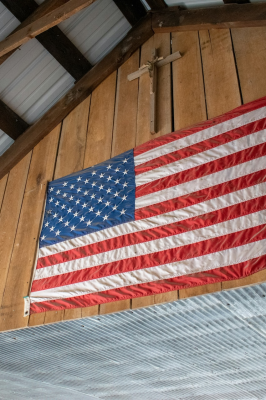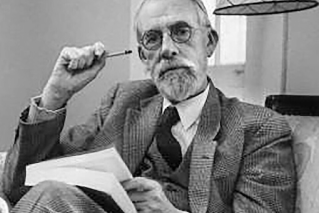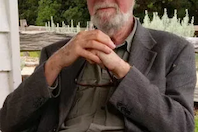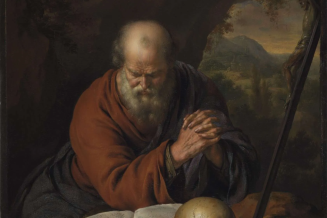Ian Linden: Christian nationalism - the silence of the bystander

Photo by Kelsey Todd on Unsplash
Powerful forces are dismantling democracy in America. President Trump's murdered ally and influential supporter, Charlie Kirk, was given a five hour funeral ceremony in a packed Phoenix stadium on 21 September. It was both spectacular and unprecedented. Oration after oration, from the President, Vice-President and key leaders at high levels of the administration, fused Christian Nationalism with the Trump project.
The dominant message from a carefully crafted tribute to Charlie Kirk, mostly implicit, sometimes explicit, was that here, assembled in pious memory before over 63,000 people, and worldwide, were the Christian leaders of the world, the US government tending the 'shining light on the hill'. Here in Phoenix's State Farm Stadium were the representatives of the US middle and working class, the victims of a 'left wing' conspiracy by the former 'satanic' Federal government, victims all, reflecting on the martyrdom of Charlie Kirk, a modern St Stephen. By my own count at least two speakers made this comparison. So did Cardinal Timothy Dolan of New York on 19 September, ten days after Kirk's death. "This guy is a modern-day St Paul". "He was a missionary, he's an evangelist, he's a hero. He's one I think that knew what Jesus meant when he said: 'The truth will set you free' ", he told CNN.
As far as anyone knew at the time of the funeral - no trial had taken place - the assassin was a 'lone-wolf' motivated by personal grievances, yet repeatedly from the platform 'they' were accused of responsibility for the killing. 'They' included any or all who opposed Trump and the Maga project and who by implication rejected Christianity.
Many - mainly - white evangelicals, are Trump supporters but the funeral presentation of the relationship between Christianity and Trumpian politics was of a different order altogether. The two had fused. In a country whose Constitution demands a strict division between Church and State, a quasi-State funeral, opening with military fanfare and national anthem, conflated the religious and political. Ayatollah Khomeini might have recognized the synthesis.
Trump's turn to Christian Nationalism is strategic as well as striking. But where does this effusion of public piety by President, Vice-President and heads of key government departments come from? In this second Presidential Term, unlike the first, a thought-through plan has gained momentum led by his extremist enforcer, White House Deputy-Chief of Staff, Stephen Miller. The plan, which attacks Islam, immigration, globalisation and a rules-based international order, as well as 'woke' culture, gender diversity, and the world of LGBTQ, overlaps with popular feeling. It aims to establish America as saviour of Western civilisation. In its traditional understanding of marriage and the family and its stance against abortion, certain aspects of Christian Nationalism also appeal to Catholics.
Trump was following the Heritage Foundation's Project 2025. Published in April 2023, it expresses the aims of some 100 highly conservative organisations, setting out proposals for an agenda of sweeping, disruptive change, including for marriage, family, work, Church, School, and volunteering. Christian Nationalism, promoted by Russell Vought, Trump's director of the Office of Management and Budget, founder of the Centre for Renewing America, also finds a place. Charlie Kirk picked up on these ideas even down to arguing that employers should allow workers to take their Sabbath rest.
Trump issued an Executive Order Eradicating Bias Against Christians in February 2025, with an extensive agenda and Task Force including several government departments. Liberal and Leftwing intolerance of social conservatism had fed the crocodile, enabling the far-Right to pose as champions of Freedom of Speech.
"History does not repeat but it does instruct" writes Professor Timothy Snyder, one of Trump's fiercest critics, in On Tyranny: Twenty Lessons from the Twentieth Century, published by Penguin.
In 1934, led by Swiss theologian Karl Barth, several Churches came together to publish the Declaration of Barmen denouncing the German Christian movement that supported Nazi rule. Article 8.24 "We reject the false doctrine, as though the church, over and beyond its special commission, should and could appropriate the characteristics, the tasks, and the dignity of the State, thus itself becoming an organ of the State".
Clearly things are not this bad in America today, but the supporters and language of the Declaration, known as the Confessing Church, are instructive. Opponents of Christian Nationalism need to speak out powerfully and theologically, in words stronger than 'disappointment", 'forgiveness' and 'reconciliation'.
The German Confessing Church in the 1930s is not unique. The more than 150 theologians and clergy in apartheid South Africa who signed the 1985 Kairos Document, Challenge to the Church: A Theological Comment on the Political Crisis in South Africa were a similar, less official, phenomenon. I experienced Christian Nationalism in apartheid South Africa in the 1980s: the ethnic Bantustans as supposedly national entities, racial groups with segregated churches, the legalised oppression of a national security State. In this instance, the Dutch Reformed Church supplied the theological justification. My late friend, the theologian Albert Nolan OP, a key contributor to the Kairos Document, called apartheid 'sin made visible'. In a different context the Trump administration is parroting a Christian narrative in the hope it might elevate their plans to moral legitimacy.
Patriarch Kirill's vision of Russian Orthodoxy: blessing Russian aggression, giving absolution to the military going off to slaughter and be slaughtered, officer corps attending monasteries for injections of piety, denunciation of Western civilisation as decadent, is also instructive. Pope Francis' description of the Moscow Primate as 'Putin's altar boy' captured Kirill's collaboration undiplomatically but succinctly. Significant parts of the global Orthodox family have criticised Kirill, led by the Ecumenical Patriarch of Constantinople, Bartholomew who described his declaring Putin's war in Ukraine as a "Holy War as "un-Christian" and 'shameless', 'better that he resigned' than follow this path.
Timothy Snyder's twenty lessons/instructions in his book are, in the main, as valid today as they were when he wrote them in 2017. It would make a suitable, if demanding, gift to young people, preparing them for decisions they should make in a dangerous world. Tyrants, he writes, learned the lesson of the 1933 Reichstag fire: "one moment of shock enables an eternity of submission". Hannah Arendt (1906-1975) in a signature understatement, had summed up Snyder's approach: "I was no longer of the opinion that one can simply be a bystander." That is a lesson for everyone. In Nobel Laureate and Holocaust Survivor, Elie Weisel's words: "What hurts the victim most is not the cruelty of the oppressor but the silence of the bystander."
Church leaders urgently need to bestir themselves and counter contemporary Christian Nationalism. It is a grave, perverse abuse of the Christian Faith that must not be left unchallenged. Christian symbols are already appearing in the 150,000 demonstration against immigration called by Tommy Robinson in London. The future of democracy, the resilience of national institutions depend on enough people having the courage to stand up in their defence.
"Over-reaction, let's wait and see" is an easy, dismissive answer to the appeal above. The reply to that is: haven't we seen enough? If we wait too long it may be too late. "But they share some of our core doctrinal beliefs." Indeed, but apply Matthew 7:16: "by their works shall ye know them."
Professor Ian Linden is Visiting Professor at St Mary's University, Strawberry Hill, London. A past director of the Catholic Institute for International Relations, he was awarded a CMG for his work for human rights in 2000. He has also been an adviser on Europe and Justice and Peace issues to the Department of International Affairs of the Catholic Bishops Conference of England and Wales. Ian chairs a new charity for After-school schooling in Beirut for Syrian refugees and Lebanese kids in danger of dropping out partnering with CARITAS Lebanon and work on board of Las Casas Institute in Oxford with Richard Finn OP. His latest book was Global Catholicism published by Hurst in 2009.
LINK
Ian Linden: www.ianlinden.com/latest-blogs/


















